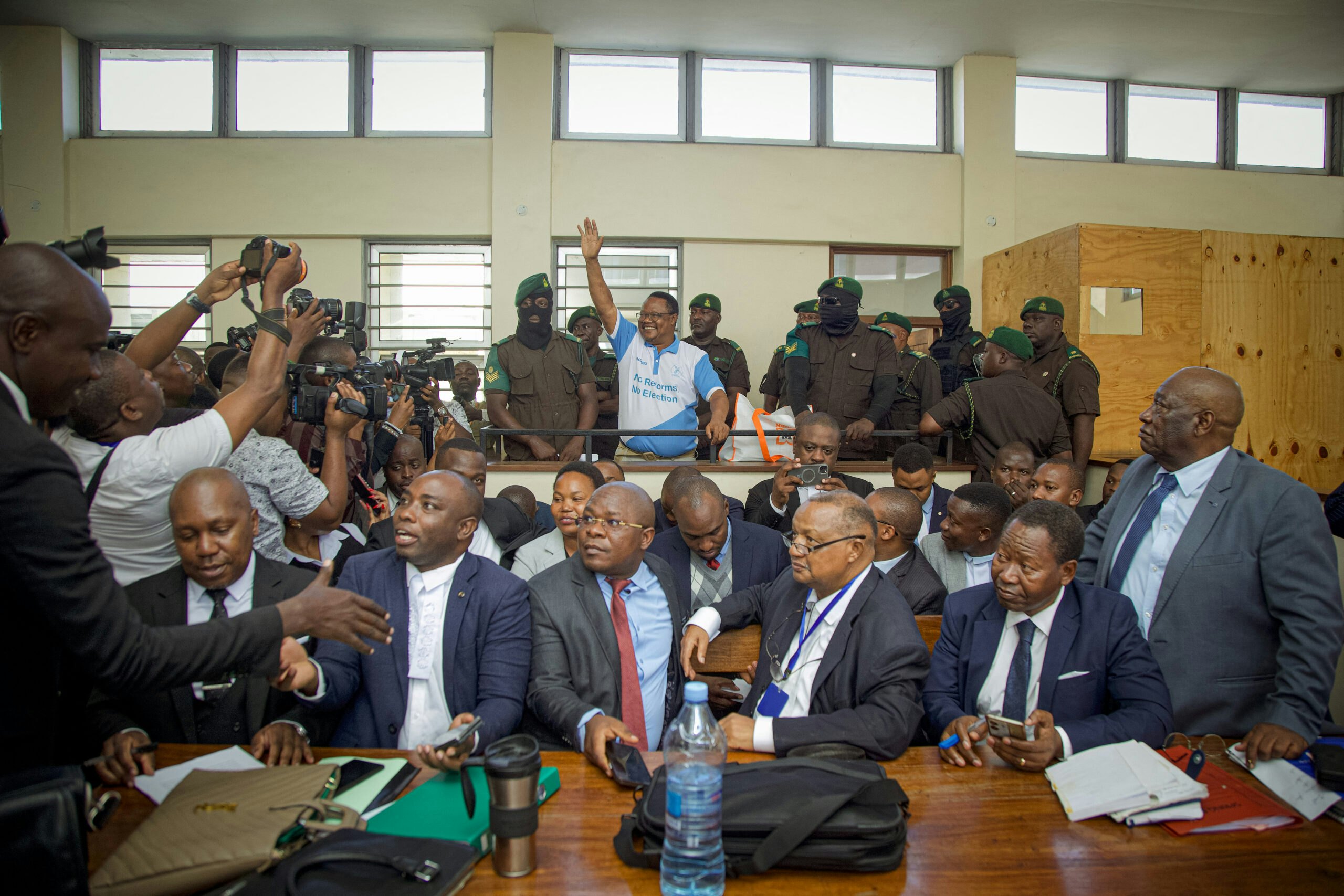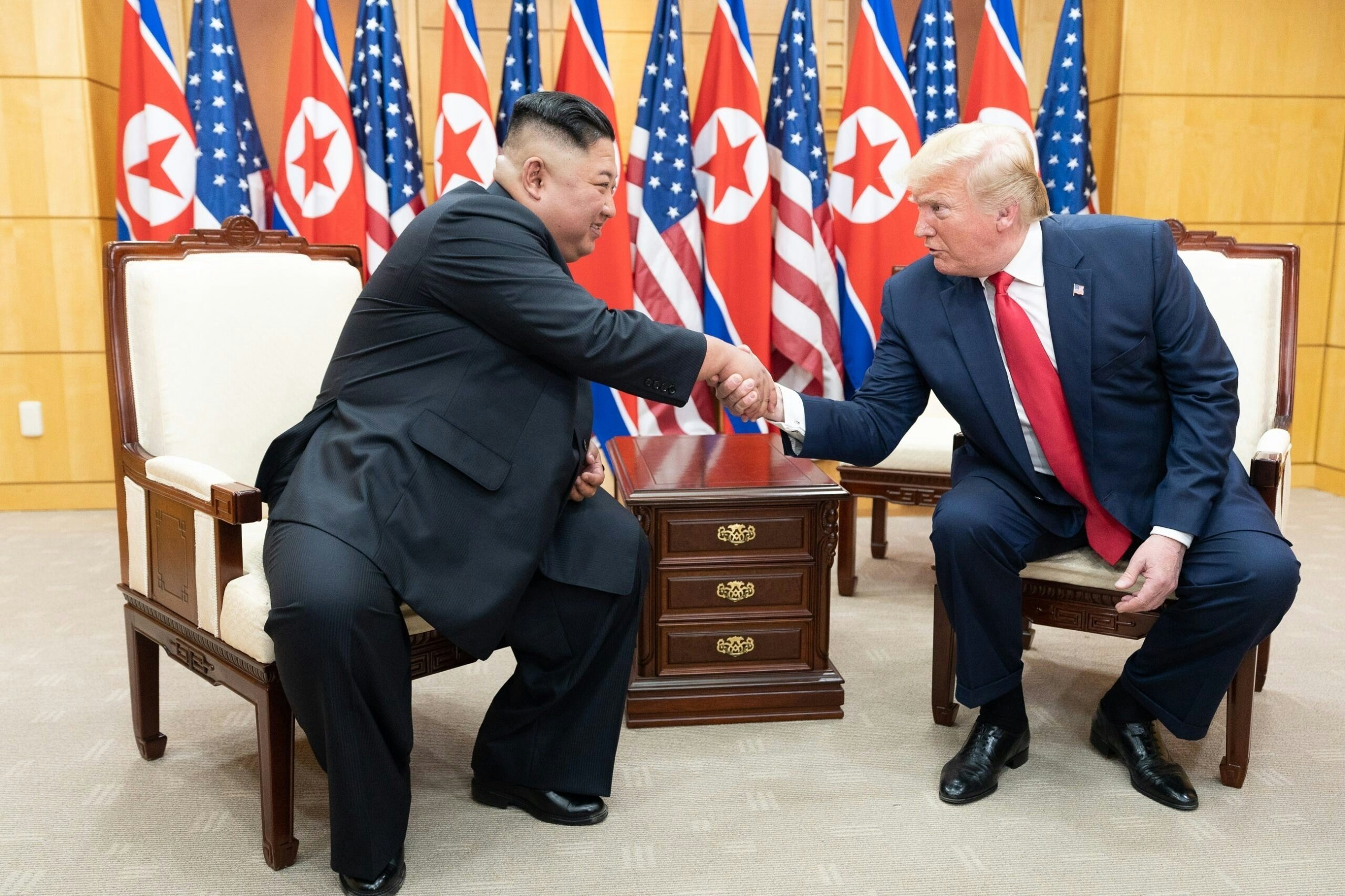Joint Russian-Belarusian military exercises featuring simulations of attacks on Poland and the Baltic States are set to get underway later this week and are making neighboring states nervous. That nervousness was heightened this week after several dozen Russian drones violated Polish airspace, forcing the Polish military to shoot down a number of them.
Known as Zapad 2025, this Russian-Belarusian muscle-flexing is the latest example of the aggressive behavior and deepening cooperation between Belarus’ dictator, Aliaksandr Lukashenka, in power for more than three decades, and his Russian counterpart, Vladimir Putin. Lukashenka oversees an authoritarian regime in Belarus, is complicit in Putin’s war against Ukraine, and poses a threat to other countries in the region.
Lukashenka ranks as one of the truly bad guys on the world stage and is widely viewed as an illegitimate leader.
And yet on his way to Anchorage, Alaska, last month to meet with Putin, President Donald Trump praised Lukashenka on Truth Social as a “highly respected president” he was looking forward to meeting. Lukashenka reportedly played a key role in encouraging the summit of U.S. and Russian leaders.
Both the United States (during Trump’s first term) and the European Union imposed tough sanctions on Lukashenka for stealing the 2020 Belarusian presidential election and the brutal crackdown that followed. Those sanctions largely remain – and should remain – in place. Previous U.S. presidents haven’t met with Lukashenka, and the reasons for not doing so remain truer than ever.
Lukashenka enabled Putin’s full-scale invasion of Ukraine in 2022 by allowing Russian troops to use Belarusian territory to launch a major part of the attack. He has continued to host Russian troops, weapons, and military infrastructure. Lukashenka is complicit in Putin’s war crimes against Ukraine. Had Lukashenka not been in power in 2022, Putin might not have been able to attack their mutual neighbor.
Lukashenka has the blood of Ukrainians on his hands, but he also has that of his fellow Belarusian citizens and others. He has stolen or rigged numerous presidential “elections” and unleashed brutal force against peaceful demonstrators, especially after the 2020 vote.
The Belarusian dictator is responsible for arresting more than 1,200 political prisoners and has depended significantly on Russian support to remain in power, weakening Belarusian sovereignty and independence in the process. Russia accounts for more than 60% of Belarus’ total trade turnover. Given Russia’s own economic difficulties, that dependence bodes poorly for Belarus’ future.
Lukashenka ordered the hijacking of a civilian airliner flying from Athens, Greece, to Vilnius, Lithuania, in 2021 to nab a critical Belarussian blogger who was on board. He has also weaponized refugees and migrants against neighboring states. He recently attended the Shanghai Cooperation Organization summit in China – Belarus formally joined the SCO last year – as well as the Chinese military parade right after, standing alongside fellow tyrants from Russia and North Korea. Lukashenka has deepened ties with Iran and met Aug. 20 with Iranian President Masoud Pezeshkian to discuss opportunities to expand bilateral and especially military relations. Belarusian officials have also reportedly engaged with Afghanistan’s Taliban leadership.
European and American leaders should avoid falling for his old trick of pretending to seek better ties with the West.
Lukashenka has met with several U.S. officials in recent months who have been eager to secure the release of political prisoners, including several U.S. citizens. When Lukashenka has ordered the release of some, he has won praise from the United States – for releasing people whom he never should have arrested in the first place.
In an interview with Time magazine, Lukashenka claimed he spoke with Trump on Aug. 15, a conversation that likely led to Trump’s Truth Social posting praising the Belarusian dictator. That would be the first known time a U.S. president has spoken with Lukashenka by phone. In the Time interview, Lukashenka voiced support for normalizing diplomatic relations with the United States and lifting of U.S. sanctions, which has long been his goal.
Sviatlana Tsikhanouskaya, who won the 2020 presidential election that Lukashenka stole, remains the leader of Belarus’ democratic forces in exile in neighboring Lithuania. In a recent speech, Tsikhanouskaya praised Trump’s efforts this summer to seek the release of Belarusian political prisoners, which included her husband, Siarhei. But she also argued against easing sanctions against Lukashenka: “Unfortunately,” Tsikhanouskaya cautioned, “experience shows that Lukashenka cannot be trusted. We must look at actions, not words.”
Rather than engaging with Lukashenka, the U.S. administration should appoint a special envoy to Belarus, given that we have no ambassador in its capital of Minsk. That person’s mandate should support the exiled democratic forces, seek the release of more political prisoners, and work with our European allies in not only maintaining but tightening sanctions against the Lukashenka regime. That would be good for the people of Belarus and also help Ukraine, the victim of aggression from both Putin and Lukashenka. Any U.S. presidential visit to Minsk should happen only after Lukashenka is gone from power.
David J. Kramer, executive director of the George W. Bush Institute, served as deputy assistant secretary of state for Russia, Ukraine, Belarus, and Moldova from 2005 to 2008.































